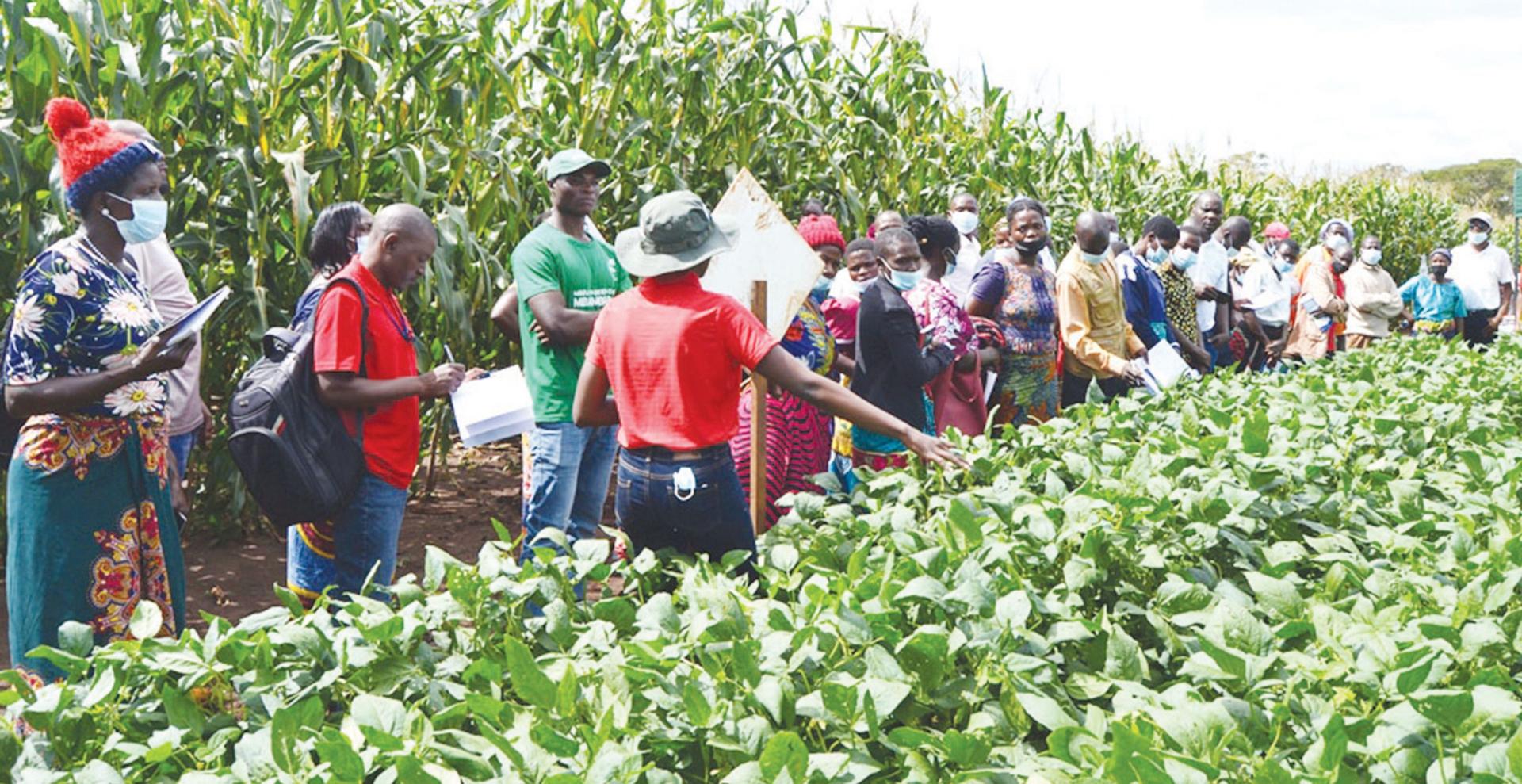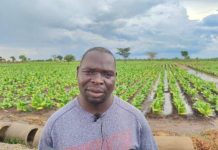Africa-Press – Malawi. Moses Bwankhuku, a 55-year-old smallholder farmer from Ntakuzi Village in Traditional Authority (T/A) Chakhaza, Dowa District, is worried with the ever-decreasing quantity of crop yield on his farmland.
In the yesteryears, this piece of land would produce over 100 bags of maize weighing 50 kilogrammes each and this would give his six-member family more than enough food to last a year. Bwankhuku would sell the surplus and use the money to pay fees for his school-going children and buy necessities for the family.
“But that is not the case today. I am struggling to feed my family because crop yield has steadily declined to the extent that we are forced to buy from vendors to supplement what I produce,” he narrated.
Bwankhuku, whose family has grown to 10, disclosed that he now realises around 30 bags of maize weighing 50 kilogrammes each, which translates into 1.5 tonnes. This is against the 2.7 tonnes of maize, which the family requires to have as food for a year.
Bwankhuku’s dilemma confirms fears by the Food and Agriculture Organisation (Fao) that producing enough food for the world’s ever-growing population by 2050 will not be an easy task for developing countries such as Malawi. Fao says climate change adds a large degree of uncertainty to projections of agricultural output.
“But clearing hundreds of millions of hectares of wild lands—most of the land that would be brought into use is in Latin America and Africa— while increasing today’s brand of resource-intensive, environmentally destructive agriculture is a poor option. Therein lies the real challenge in the coming decades: how to expand agricultural output massively without increasing by much the amount of land used,” it warns.
It advises that developing nations could score substantial gains in productivity by making better use of modern technologies and practices. But that requires money.
According to Fao, investment throughout the agricultural chain in the developing world must double to $83 billion a year if people were to meet the 2050 challenge.
“Most of that money needs to go towards improving agricultural infrastructure, from production to storage and processing. In Africa, the lack of roads also hampers agricultural productivity, making it expensive and difficult for farmers to get synthetic fertilizers,” notes the organisation.
Centre for Agriculture Transformation (CAT) Executive Director Macleod Nkhoma said his organisation is investing a lot in science, technology and innovation with a view to help smallholder farmers tackle the adverse effects of climate change.
Nkhoma stated that agriculture remains a very important factor in generating income and food for many people around the world and that is why the sector continues to undergo changes and advancements in various agricultural methods and technologies.
“The methods of modern agriculture and agricultural operations are very different from decades ago, mainly due to technological advancements, including sensors, equipment, machines and information technology. For example, today, we are promoting the use of inorganic fertilisers, less consumption of pesticides, and use of different tractors and machinery to maximise production and productivity,” he said.
Nkhoma disclosed that it is against this background that CAT initiated a project designed to reinvent farming through employment of a multidisciplinary approach that involves not just biologists, agronomists and farmers, but also ecologists, policy-makers and social scientists.
Foundation for Smoke Free World’s Agricultural Transformation Initiative (FSFWATI) is financing the project. FSFWATI Vice President Candida Nakhumwa observed that smallholder farmers face internal and external challenges in using modern agricultural technology.
Nakhumwa cited land area, technology costs and benefits as some of the economic factors that determine the pace of agricultural technology adoption. “Education level, age, social group and gender of farmers are social factors that affect the possibility of farmers using modern agricultural technology,” she said.
Recently, FSFWATI and CAT took 60 farmers from Dowa and Lilongwe on a learning visit to CAT-Bunda Smart Farms at the Lilongwe University of Agriculture and Natural Resources.
A representative of the farmers, Lloyd Kayimbe of Village Head Mninga in T/A Chadza, Lilongwe, commended the organisations for the learning visit, saying it had equipped them with skills and knowledge they would use to smart out of perennial hunger. Kayimbe – who is also lead farmer and Area Sector Panel chairperson – said he would mobilise fellow farmers to adopt new farming techniques.
For More News And Analysis About Malawi Follow Africa-Press






